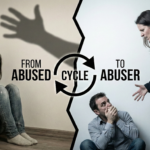Symptoms of a mental health problem are just that, symptoms. Symptoms such as depression, anxiety, nightmares, flashbacks, self-harm, suicidal thoughts/gestures, hopelessness, and many more are the result of a deeper problem. These symptoms many times lead to people using substances or alcohol, or having eating problems, violent outbursts, suicide attempts, and other unhealthy ways to ground themselves to relieve the pain and discomfort. A bigger problem arises when clients, therapists or other professionals treat the symptoms as problems. This is what I call “Chasing Symptoms.”
I have supervised many therapists over the years and one of my pet peeves is teaching them to stop “Chasing Symptoms”. I coined that expression back in the mid 90’s when working with children. I found myself always putting out fires. I was either de-escalating someone who was angry and aggressive or calming someone who was having a panic or anxiety attack, or someone depressed expressing self-harm intentions. All were symptoms of a much deeper issue and all related to past unresolved traumas or life events.
Now, let me be clear, of course you must address the symptoms to de-escalate a situation. What I am saying is to keep your focus on what fueled the symptoms in the first place. Do not let the symptoms become “the problem.”
A psychiatrist once taught me that no one is born with too much anxiety. That rang a bell for me to look a little closer at symptoms. I realized I was running around reacting instead of pro-acting. As professionals we only have a limited amount of time to address a client’s problems. If we are always putting out fires during that time, we are not addressing the real issue(s). So next time you feel you are more “fireman” than “therapist”, stop and re-assess the situation and look for the causal factor(s). You will find unresolved past issues are the culprit. The work needs to focus on past resolution while implementing a healthier ground or band aid to address the symptom.
For my nonclinical readers, I say be aware that most times your anxiety, depression, self-harm thoughts, eating problems, addictive behaviors, and other issues that interfere with your daily functioning are likely due to a deeper issue. I do not expect you to know how to resolve it, but I do want you to recognize symptoms are not the problem. I have had so many people tell me they have an anxiety problem. I respond by saying, “no,” “you have an anxiety symptom.” Saying I have an anxiety problem makes you believe that a medication or relief of the anxiety by some other band aid has fixed the problem. This cannot be further from the truth.
I want my readers to be aware that taking medications for the symptoms or engaging in healthier grounds (e.g., meditation, yoga, breathing, art, music, exercise, writing, etc.) will not be enough to resolve your past unresolved problem. It will take delving deeper into your lives to identify what may be fueling these symptoms. By understanding that your current relief for your symptoms is only a band aid and not the answer may keep you from falling prey to the expectation that you have addressed your problem. I have witnessed this false security in all my groups, and it just does not end well for you. It is a total letdown when you were led to believe that symptom relief solved your problem.
So, what are past unresolved issues? I can speak from my experience, and all have involved a past traumatic life events or past learned behaviors. Past traumatic life events would include abuse, war, accidents, divorce, death, medical problems, natural disasters, domestic violence, and any other event that has had a negative impact on your current mental health state. Behavioral issues most times stem from your past family or community environment.
So, the next time you find yourselves saying “I have an anxiety problem” or label any symptom you are experiencing as the problem, stop and think about what I am saying in this post. Know that symptoms are an outlet to deeper issues fueling them and are not the problem themselves. By recognizing that the symptoms are not the problem itself it will make you more aware of your body and mind. If symptom relief by some form of healthy ground I mentioned is good enough for you, then that is fine, just do not believe you have resolved the problem. All you have done is relieve the symptom until triggered again. Although band aids are good for a certain amount of time, they are not the solution. Work on the solution and stop chasing the symptoms!
Mind, Body, Spirit…Balance!
Vinnie Strumolo, CEO, CCO, LMFT






